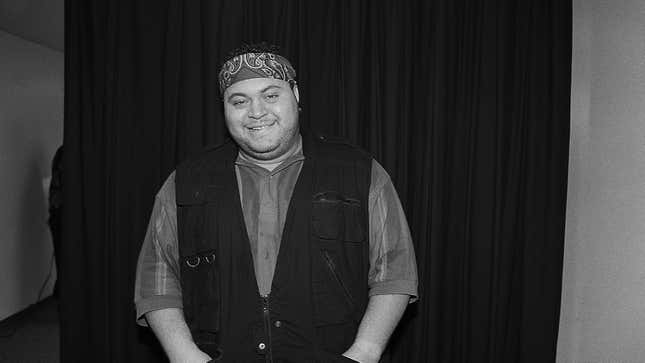
Mark Anthony Morales, known to rap fans worldwide by his stage name Prince Markie Dee, has died. As one-third of the ’80s rap trio The Fat Boys, Prince Markie Dee helped establish the sound of old-school hip-hop (mixed with a healthy dose of self-deprecating comedy), before embarking on a solo career that saw him produce for some of the biggest artists in the business. Per Variety, Morales was 52. No cause of death has been announced.
A Brooklyn native, Morales—already teamed up with Damon “Kool Rock-Ski” Wimbley and Darren “The Human Beat-Box” Robinson—came to musical prominence in the early ’80s, when “The Disco 3" won a dance and rap contest held at Radio City Music Hall. Renamed as The Fat Boys after an initial European tour, Prince Markie Dee and his groupmates embraced a public image that sometimes had them dismissed as a “novelty” act—but rarely by people who actually knew anything about rap. Introducing sounds like beatboxing to the musical mainstream, and working with producer Kurtis Blow, the early Fat Boys album might be frequently food-focused, but they also featured clever rhymes, addictive hooks, and a technical proficiency that undercut any accusations of the group being a “mere” comedy group.
A series of popular commercials for Swatch led to the trio also becoming film stars, lending their talents first to 1985's Krush Groove, and then eventually to 1987's Disorderlies, allowing Morales and his friends to become a popular face for the rising tide of rap. But though The Fat Boys continued to release well-received albums throughout the 1980s—with Crushin’, featuring a collaboration with The Beach Boys, scoring their only Platinum release—changing tastes in rap music in the 1990s led to a slow decline in the group’s fortunes. Prince Markie Dee left the group to explore his solo prospects in the early ’90s, releasing his first solo album, Free, in 1992. Winding its way from rap toward R&B, Free was a moderate success, with “Typical Reasons (Swing My Way)” landing at No. 1 on Billboard’s rap charts.
Morales then embarked on a career as a producer, with his list of collaborators in the 1990s reading like a who’s who of major musical trends: Mary J. Blige, Jennifer Lopez, Mariah Carey, Marc Anthony, and Craig Mac all worked with him and used his tunes (including on Blige’s first big hit, “Real Love”). In 1995, the death of Robinson ended any hopes for a possible true Fat Boys reunion, although Wimbley and Morales reportedly played at least a few gigs together in later years, with Doug E. Fresh serving as their beatboxer. Morales spent much of the intervening years on the radio, hosting and DJ-ing stations in and around Miami.
Prince Markie Dee’s death was announced online today by his manager, Louis Gregory. He was memorialized online by many this evening—perhaps most notably by Questlove, who highlighted how many boundaries The Fat Boys broke with their rise to the national consciousness.